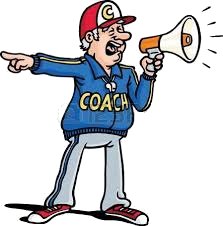
What You Should Expect From A Professional Running Coach
When considering hiring a running coach, there are a few things you should expect of that coach, and a few things your coach will expect from you. To help you on your running journey, I am outlining six things you should expect from your coach. Every coach is different, but I think for your running season to be a success, it’s a good idea to understand what you are getting into and what you should expect from your coach.
A clear training plan
This plan should be built for you and your schedule, goals, time, etc. The plan should be easy to understand and follow. If there are terms and paces you do not understand, your coach should be educating you along the way. There should be a purpose for every run, and you should know what that purpose is – time on your feet, active recovery, threshold pace, etc.
Support
Your coach is there to support you and hold you accountable. Your coach should be pushing you towards your goals, with workouts and recovery that fit your needs. Your coach should be someone you can confide in, be honest with, and trust. The kind of support you are looking for and will receive is important. Some runners want a very authoritative figure, while others want to be coddled a little, and want a coach they can view as a “pal.” Be honest about what you need and want, and who can fill that role as a coach.
Credentials
You should expect your coach to know their profession. Basic credentials are a given – including certifications, personal experiences in racing, and a resume of work. Professional certifications are important. Look out for credentials from a reputable organization like USA Track & Field or the Road Runners Club of America.
Your coach should always be striving to learn more, maintain their credentials, and in an ideal world, be adding news ones to their list. If your coach doesn’t know anything about tapering, strength training, or perhaps hydration – you need to look elsewhere. After all, you are trusting this professional with your body, time and money.
Motivation
Your coach should be someone who can pick you up when you are feeling down. After a bad workout, a nagging ache or pain, a lack of motivation – your coach should be your cheerleader, voice of reason, and positive resource. There will be times a coach needs to have “the talk” about race day goals that aren’t in the cards (injury issues, sub-par training), and those conversations truly suck. But your coach will also be the person who will push you to reach for a higher goal, remind you of all the hard work you’ve put in, and be the voice of reason when we doubt ourselves. It’s fascinating how one or two bad workouts will lead a runner on a downward spiral, questioning everything, while months of fantastic training leaves many runners feeling okay, but never really celebrating their milestones. Your coach will always be on your team
Success
Success can come in different shapes and sizes, and perhaps your big goal when sitting down with your coach on Day 1 won’t happen that first year. Or perhaps your goal will change – which is totally fine! Success may be: running pain-free, accomplishing a new race distance, lowering your previous personal record, qualifying for a race like Boston Marathon, learning to love to run, fixing running form or nutrition habits, losing weight, enjoying a new hobby – these are all different goals. Time goals are the hardest to achieve, because in order for that goal to happen, the athlete will need to feel 100% on race day, and run a smart and strategic race. The role of the coach will be to keep the athlete as injury-free, well-balanced, and fresh for race day. The coach will also be expected to discuss race day strategies, pacing, fueling, and how to adjust if things don’t go according to plan. The minute that gun goes off, the race is entirely in the hands of the athlete, not the coach. If a goal falls short, the coach and athlete should figure out why, learn from it, and figure out the next step.


